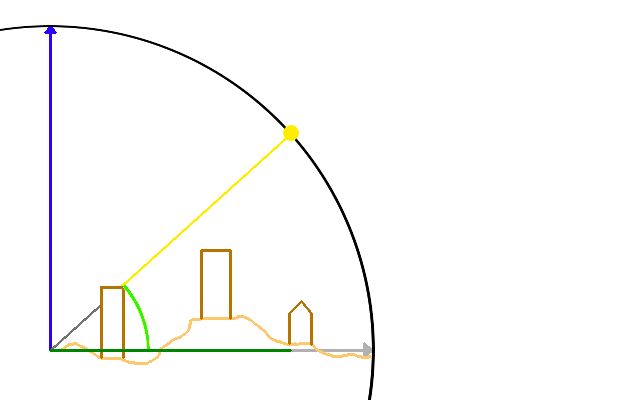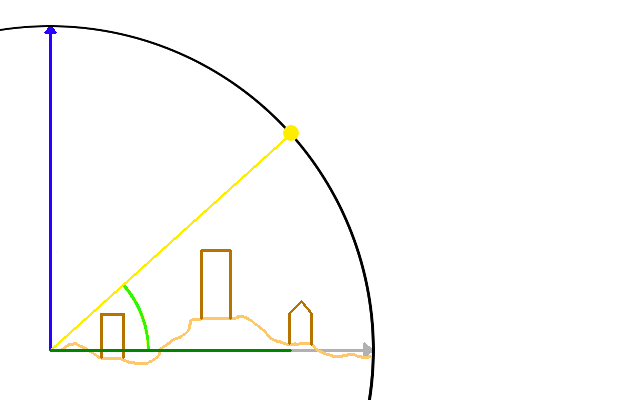Shade calculation model (Heat Overlay): Difference between revisions
Jump to navigation
Jump to search
No edit summary |
No edit summary |
||
| Line 3: | Line 3: | ||
Each timeframe result of a [[Heat_(Overlay)|Heat Overlay]] is related to a particular [[Sun_altitude_(Heat_Overlay)|sun altitude angle]] and [[Sun_azimuth_(Heat_Overlay)|sun azimuth angle]]. These angles are calculated automatically based on the world location of your project and the [[Dates_(Heat_Overlay)|date]] of the timeframe. | Each timeframe result of a [[Heat_(Overlay)|Heat Overlay]] is related to a particular [[Sun_altitude_(Heat_Overlay)|sun altitude angle]] and [[Sun_azimuth_(Heat_Overlay)|sun azimuth angle]]. These angles are calculated automatically based on the world location of your project and the [[Dates_(Heat_Overlay)|date]] of the timeframe. | ||
[[File:shade_top_down|500px]] | |||
[[File:shaded_Heat_Overlay.png|500px]][[File:unshaded_Heat_Overlay.png|500px]] | [[File:shaded_Heat_Overlay.png|500px]][[File:unshaded_Heat_Overlay.png|500px]] | ||
Revision as of 16:18, 19 September 2019
The shade calculation is described on this article.
Each timeframe result of a Heat Overlay is related to a particular sun altitude angle and sun azimuth angle. These angles are calculated automatically based on the world location of your project and the date of the timeframe.

